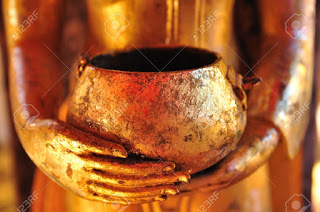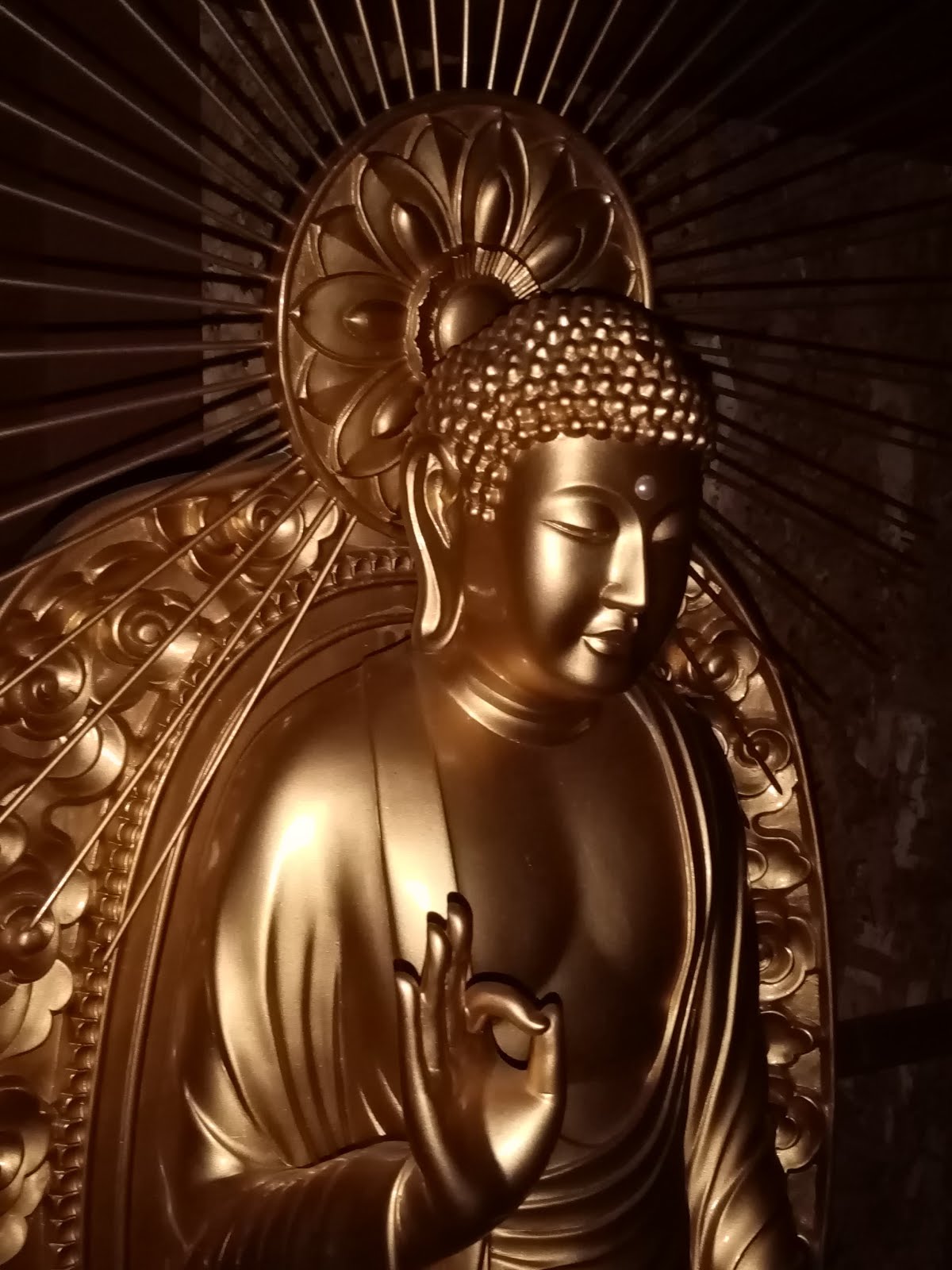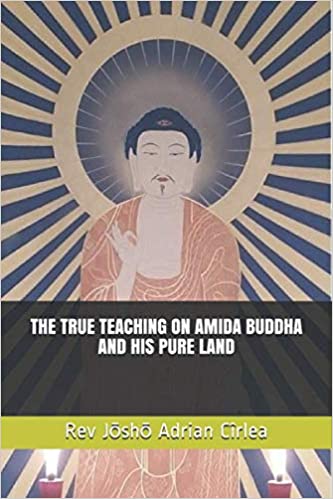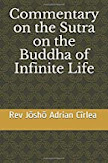“White Ashes” is a meditation upon impermanence and death and when I read it I link it to the final words of Shakyamuni before entering Parinirvana: “All things are transient, strive consciously”. In this letter all is reduced to awareness: to be or not to be aware of your own death, of your own impermanence.
I think usually people are not aware of the fact that their life is always going to the inevitability of death. When a person doesn’t become aware from the depth of his heart of the impermanence of life and the changing nature of everything around him, he is not yet capable of making use of religion in order to find a real meaning in his life. He will give all his attention to the outer world and search his fulfillment there.
I remember that in early Buddhism one of the most practiced meditation methods was meditation on death. The disciple stayed in a graveyard and meditated on a dead corpse seeing its state of decay and realizing that the same thing will happen to his body too. Thus he became more and more capable to awake himself to the reality of death, detach from his body and abandon the life centered on the ego. To meditate on impermanence and death is, in my opinion, the most authentic action, it is to stop lying ourselves. Untill we do not become aware of our own death and impermanence, we are just dreaming, making plans and thinking that we have all the time in the world for doing everything, thinking that death is only an idea or a poetry.
People of modern times do not give themselves much time to meditate on the real nature of life. They behave like they can live forever. I remember a comparison made by an Indian sage, who said that ignorant people are the same with dogs when they look to a dead person. This is because when you see a dog that looks to another dead dog you can notice that he somehow looks at the corpse like he doesn’t realize what happened. The dog just inspects the corpse and walks around it not without the slightest thought that the same death will sometime occur to him too. In the same way, people look to a dead person like to something that may happen only to someone else, something like a bad luck. They understand death only at the level of information but not actually feel death as something inevitable. When a person begins to feel and be aware of the reality of death and the impermanence of all things, he suddenly stops. It is the stop that can give his life a real meaning. The awareness of death, sickness and old age was also the thing that made Siddhartha to leave his royal palace in search of Enlightenment.
Speaking about myself, the words that often come to my mind from the teaching of the Buddha are urges based on the awareness of impermanence. I repeat them almost unintentionally: “I have no time, life and death are most important” or “follow the Way like this would be the last day of your life”. The law of impermanence is what makes me a Buddhist.
A turning point in my life was the death of three persons: a friend, followed in succession by his father in a few months and my grandmother. In my personal history this was the period I left the way based on the self power and took refuge in the Primal Vow of Amida. Is very hard for me to describe in words what I felt then. Is a strange and unbearable sensation to feel your hands and all the body as fragile as a match.
Sometimes the thought of my own death scares me, I seldom read in peace this letter of Rennyo. There are shocking and heavy words in it which can be set at ease only by the last sentence in which Rennyo speaks about entrusting to Amida Buddha and saying the nembutsu: “So we should all quickly take to heart the matter of the greatest importance of the afterlife, entrust ourselves deeply to Amida Buddha and recite the nembutsu.” In this last sentence is our hope, without this last sentence the whole letter would be a producer of depressions for ignorant people like us, full of blind passions.
Rennyo does not say as in the Heart Sutra: “there is no death, there is no pain, there is no beginning and no secession of pain” but “there is death, there is pain, rely on Amida Buddha”. In the face of the shock which death and impermanence brings to any ordinary person, Rennyo does not speak about subtle things, because he does not talk with Buddhas or saints. This is what I like most in Jodo Shinshu; the emphasize is not on what we can become – we are all Buddhas in our real nature and we must awake ourselves to this absolute truth – but on what we are here and now, that is ignorant beings who cannot overcome through their own powers the problem of life and death. To these kind of beings, Amida Buddha says: “All is ok, just rely on me”. This is exactly what I needed to hear. The Primal Vow of Amida contains the words that I desperately searched in all Buddhism.
I do not know how others are, but I don’t think that a wise sentence of a Zen Master can make me overcome this problem. For me the fact that I already have Buddha nature does not keep me warm at all, it doesn’t change anything, it doesn’t help me with anything. It remains just a beautiful sentence.
I cannot overcome the perspective of my own death through dettachement based on self power. I meet many persons who are very much impressed by subtle phrases which are far beyond the ordinary level of understanding, maybe this is the reason why Zen has so much success in Europe and U.S.A. through his koans (1) which I doubt many people practice them in their true spirit. But for me, the only reality is this: If I die tomorrow, what will happen to me? My virtues are shallow, so my next birth is uncertain if I do not rely on Amida. This is the only reality to me. I am the man in front of the two rivers of water and fire, I am surrounded from all parts of all kinds of dangers, I am scared and outrun by everything is happen to me, Amida is calling me, how can I not answer his call?
Namo Amida Butsu
Footnotes:
1 Koan is a word or a phrase of non-sensical language which cannot be “solved” by the intellect. It is used as an exercise to break through the limitations of conventional thought and to develop intuition, giving the practitioner the chance to reach an awareness beyond duality. They are used as meditation objects in Rinzai Zen. However, very often these koans are treated by many as mere intellectual interesting games, loosing in this way their original functio


























0 comentarii:
Post a Comment